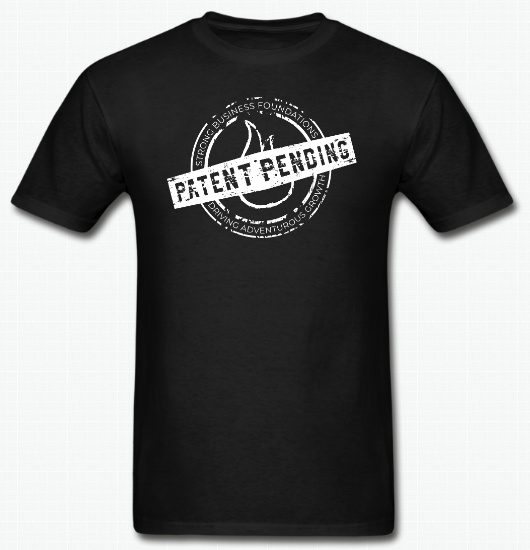Sometimes it’s clear that you can patent an invention. And sometimes it’s clear that you cannot patent an invention. But sometimes there’s a grey area in between. This is when a patent novelty search is strongly recommended. We’re going to delve into:
- The novelty search not being a requirement for patent registration;
- What the novelty search process looks like;
- The pros and cons of doing a novelty search.
For more information about the concept of a patent and the protection it provides, check out our Patent Fundamentals and Patent Concepts blog.
Want more information on Patent Registration?
Ready to protect your idea?
Patent Fundamentals
It’s important to know that to patent your product or your invention, it needs to be novel and it needs to be inventive.
Novelty means a product has to be new. It cannot exist anywhere in the world.
Inventiveness means it cannot be obvious for a person skilled in the field of the invention.
So an example could be if you just made a small (obvious) modification to an existing product. In this case, it might not be considered inventive because it’s too close to the “prior art”.
Preliminary Patentability Assessment [FREE]
IP Braai offers a [FREE] Preliminary Patentability Assessment, where we take a look at your product in terms of novelty and inventiveness to determine if a patent is the correct protection mechanism. This is a high-level assessment where a patent attorney takes a look at your product and provides feedback based on their experience and expertise.
This assessment does not take that much time which is why we can offer it free of charge. So if you think that your product is new, you’ve done some research and you can’t find anything similar, get in touch so we can conduct the assessment and provide feedback.
When Should You Conduct a Patent Novelty Search?
Sometimes it’s clear that you can patent an invention and sometimes it’s clear that you cannot patent an invention. But sometimes there’s a grey area in between where we’re uncertain if the invention is patentable. At that stage we would recommend doing a patent novelty search. We need to spend more time and energy to search for similar patents filed internationally.
Patent Novelty Search: NOT a Requirement for Patent Registration (In South Africa)
A novelty search is not always a requirement. In South Africa, we do not have substantive examination. That means the Patent Office does not examine a patent application for novelty and inventiveness.
So, in South Africa, the patent attorney plays a very important role in guiding the client, the inventor, in terms of the novelty and inventiveness of his/her invention. At IP Braai, we always offer to do a patent novelty search, but for those grey areas, we strongly recommend doing a novelty search before we file your patent.
What the Novelty Search Process Looks Like
The novelty search starts with construing, or breaking down, your invention into its basic elements (integers). So taking the ROCKETSTOVE+ as an example (see video above), we have a collapsible braai device. It has an elongated chute and a removable receiving member at the top to put your potjie on. There is a removable support station at the bottom so it won’t fall over. And there is a collapsible chute to insert the charcoal or wood.
We then look at international patent databases and we compare the elements of your invention to existing patents. In that way we can determine if your product is novel and inventive. Obviously, this is a very technical and step-wise process. And as you can imagine, this does take a significant amount of time and effort from a patent attorney, but IP Braai still offers the novelty search at a modest price.
If a Novelty Search Is Not a Requirement, Why Should I Pay to Have One Done?
There are two scenarios. In the first scenario, we do the search and there are no similar patents. That’s great! It gives the client peace of mind and it helps the attorney to draft the patent specification correctly.
In the second scenario, we do the search and we find an exact – or very similar patent. This is not what the client wanted, but at least we know the invention is not novel. In this scenario, the client actually saves money. It’s better to do a novelty search now than to register a patent and at a later stage realize you cannot enforce it because it’s not novel and inventive.
The Pros and Cons of Doing a Novelty Search
It’s important to understand that a novelty search is not conclusive because the patent attorney bases their opinion on the available information. For example, provisional patents are not open to the public. Also, we cannot search in all languages. So it comes down to the attorney giving you their opinion based on the available information. But this is obviously much better than going in blind with no homework done at all.
What happens if the patent search results come back negative, which means we found an exact or similar patent? Is that game over?
If it’s an exact copy, then it’s game over. But if it’s just a similar patent, we would look at the degree of difference, and determine if it still makes commercial sense to file a patent for your product. This is because the ambit, or width of protection, of your patent would be narrower. If the client feels it still makes commercial sense, then the patent attorney already knows how to draft the patent specification. So it’s definitely worth doing a novelty search.
Conclusion
If you have a product or invention that you believe is new, you’ve done the research and you can’t find anything similar, get in touch to discuss our [FREE] Preliminary Patentability Assessment.
And to purchase the ROCKETSTOVE+ as featured in the video: https://braaiplank.co.za/





